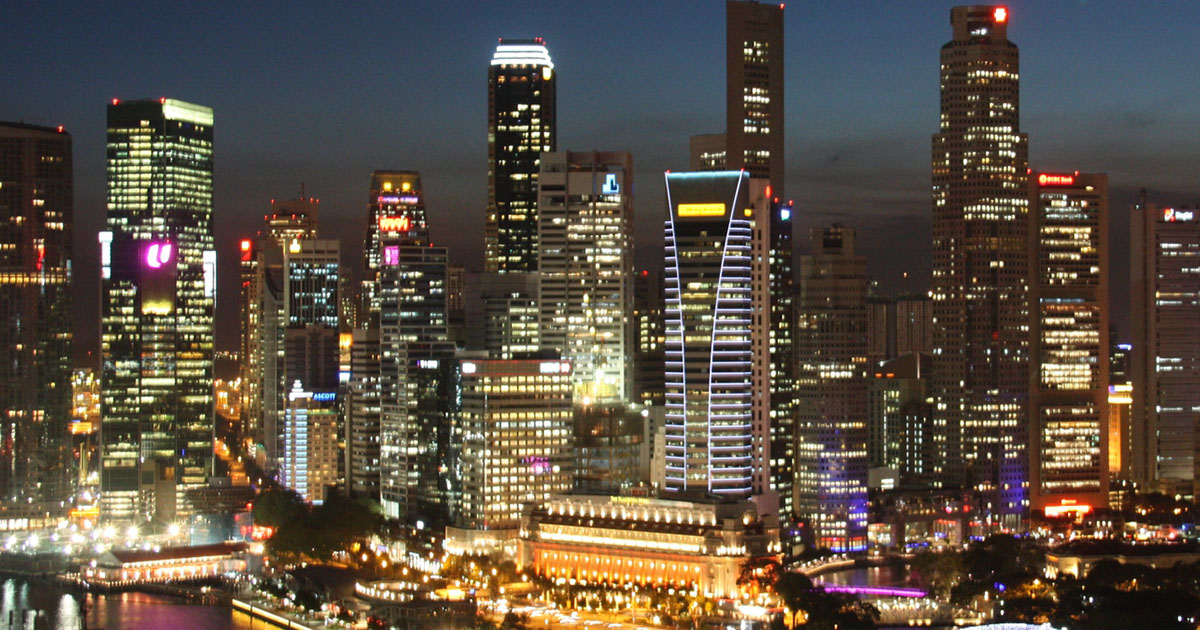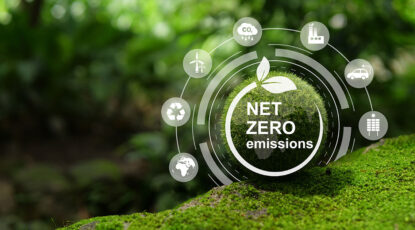Singapore has given the green light to a substantial expansion of its data center capacity, and it will be using greener electric power to do it.
SK ecoplant, a Korean company that is a long-time partner of Bloom Energy, has announced that it will be using Bloom’s innovative fuel cell technology when it builds a new data center in Singapore for GDS, China’s largest data center developer. The Singapore Economic Development Board and the Infocomm Media Development Authority selected GDS as part of a group of four data center operators that will share in what could eventually be about 80 megawatts (MW) of new capacity for Singapore’s information communication technology (ICT) infrastructure.
“Bloom Energy is excited to be a partner with SK and provide our Energy Servers to power a GDS data center in Singapore,” says Bloom Energy Founder, Chairman and CEO, KR Sridhar. “The grid constraint in Singapore is similar to the lack of power availability in most data center hubs around the world today. This lack of supply is making distributed power that can be deployed quickly with our modular AlwaysOn fuel cells the right choice for data centers. It is also the cleanest available technology today and can operate on net-zero fuels like hydrogen as they become available, thereby enabling the ICT segment to meet their sustainability goals. We look forward to supporting our partner SK in this project.”
The project will be Bloom’s first in Singapore as it expands its Asian footprint. In Taiwan recently, the company cut the ribbon on the initial phase of a 10MW project in Taiwan for Unimicron, a chip substrate and printed circuit board maker. Working with SK ecoplant, Bloom has installed more than 400 MW of fuel cells in South Korea. Bloom inaugurated a 100 kilowatt (kW) hydrogen-powered Energy Server® project in Korea in April 2021. The company also put in its Bloom Electrolyzer™ there and began producing hydrogen from it in January 2022.
Bloom’s fuel-flexible solid oxide fuel cells have become a key power source for data centers in Asia, the United States and Europe. Last fall Bloom installed 500kW of fuel cells in Bengaluru, India, for Nxtra by Airtel, which has 12 large and 120 edge data centers across India. In a report earlier this year, Frost & Sullivan named Bloom the leading company in the stationary fuel cell market and said that data centers are key to that sector’s growth. As Jeff Barber, Bloom’s Vice President of global data centers, has noted, data centers’ already substantial power appetite could get even larger with the surge in demand for generative artificial intelligence. The large power demands from data centers spurred Bloom’s latest development, the Series 10 Bloom Energy Server. Series 10 enables customers like data centers to rapidly meet growing power needs and net-zero compliance at competitive costs and without committing to a long-term contract or worrying about cost increases.
Growing power demands are being felt in markets like Singapore, which is considered a global data center hub with more than 70 data centers already in operation. Since data centers need to store and distribute a lot of information in real-time every day without a break, they need a reliable and efficient power system that can also maintain a constant internal temperature and humidity.
Bloom’s fuel cells are decentralized power sources that reliably generate electricity from natural gas, biogas or hydrogen without combustion, resulting in low or no CO2 emissions. They can also compensate for the intermittency and volatility of renewable energy.
The Singaporean government has announced it will promote a plan to supply half of the country’s power through hydrogen for carbon neutrality by 2050. SK ecoplant plans to actively seek to win additional orders for fuel cell projects in the growing Southeast Asian new and renewable energy market, including Singapore.
“As we now have experience ranging from small, medium to large-scale fuel cell power supply solutions, we will accelerate our efforts to target various markets, such as markets for power generation and commercial use,” said SK ecoplant CEO Park Kyung-il. “We intend to lead the global fuel cell market through continuous collaboration with local Korean companies, as well as top-tier companies worldwide.”



